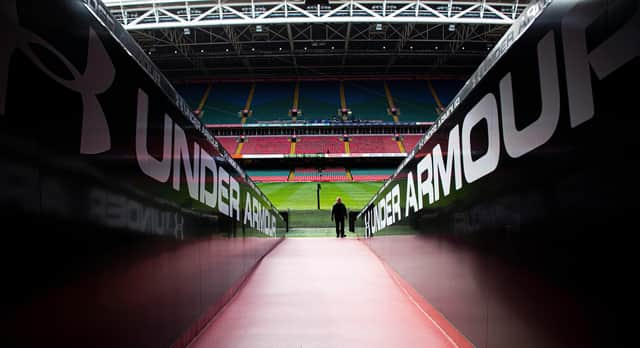Scotland facing up to Six Nations Wales clash being behind closed doors or away from Cardiff


The two teams are due to meet at the Principality Stadium on February 12 in round two of the Championship.In Scotland, Nicola Sturgeon has confirmed limits of 500 outdoor spectators would remain in place until January 17 but the restrictions in Wales are even more stringent.Only crowds of 50 are allowed to attend outdoor events in Wales as the Omicron variant of Covid continues to spread and Drakeford insisted there will be no lifting of safety measures for at least another two weeks.“We have to see the tide turn on the Omicron wave. We have to manage our way through the very difficult weeks that follow while numbers are still rising,” Drakeford told a Welsh Government briefing.Scotland are due to open their Six Nations campaign at home to England on February 5 and then host France on February 26. Sturgeon said this week that she “firmly hopes” the matches at Murrayfield will go ahead with crowds – but wouldn’t be drawn into a guarantee on the lifting of restrictions. She is expected to give a further update next week.The Welsh Rugby Union is exploring the option of staging home games in England in a bid to generate an income from the Six Nations should the shut-out of meaningful crowds continue.The integrity of the tournament is threatened with significant restrictions in place in Scotland, Ireland and France, while England and Italy are able to host capacity crowds in one of sport's most partisan events.“I make no criticism of the WRU for exploring all the options that are available to them,” Drakeford said.“They are a business and as a responsible business it seems to me that they are bound to look at all the different possibilities that are there in front of them.“Whether they will choose to go ahead and play games elsewhere with the undoubted risks that would bring, were we to be still in the eye of the storm of coronavirus, I think is a very debatable question.“But whether I have any problem with them looking at the options that they have available to them, no I don't.”Ian McGeechan, the former Scotland coach, has floated the idea of moving Scotland’s home matches to England to ensure they could be played in front of supporters. With no crowd restrictions in England, McGeechan suggested Newcastle United’s St James’ Park could host Scotland. McGeechan also mentioned Coventry City's Ricoh Arena as a potential venue for Wales' home games.Drakeford, meanwhile, has stressed how important it was to try to contain the Omicron variant by cutting down on numbers travelling to major events."There are ways in which we have learned over the pandemic to make major events organised in safer ways,” said the Welsh First Minster.“It's always been the case that the risks in major events are less at the event itself, particularly when those events are well run as certainly the autumn internationals were.“It is how people travel to the stadium, it is how people gather around the stadium, it is how people behave. Not at the game, but around the game.“So there are further measures that could be adopted that would help to mitigate those risks.“Of course, we would all far prefer to be in a position where the Six Nations could go ahead with people watching the game here in Wales.“The issue that is under the microscope is whether we can do that safely. Whether the number of people falling ill with the virus is so high that adding further to that risk simply would not be a responsible thing to do.“I know it's really difficult when you're organising a major event and you're under the pressure of time, but we won't know that for the next couple of weeks.“But we will be watching that very carefully and as I said, as soon as we can make a decision, we will make a decision. But the decision will be made on the grounds of public safety and public health safety.“In the end, that has to be the top consideration for the Government.”